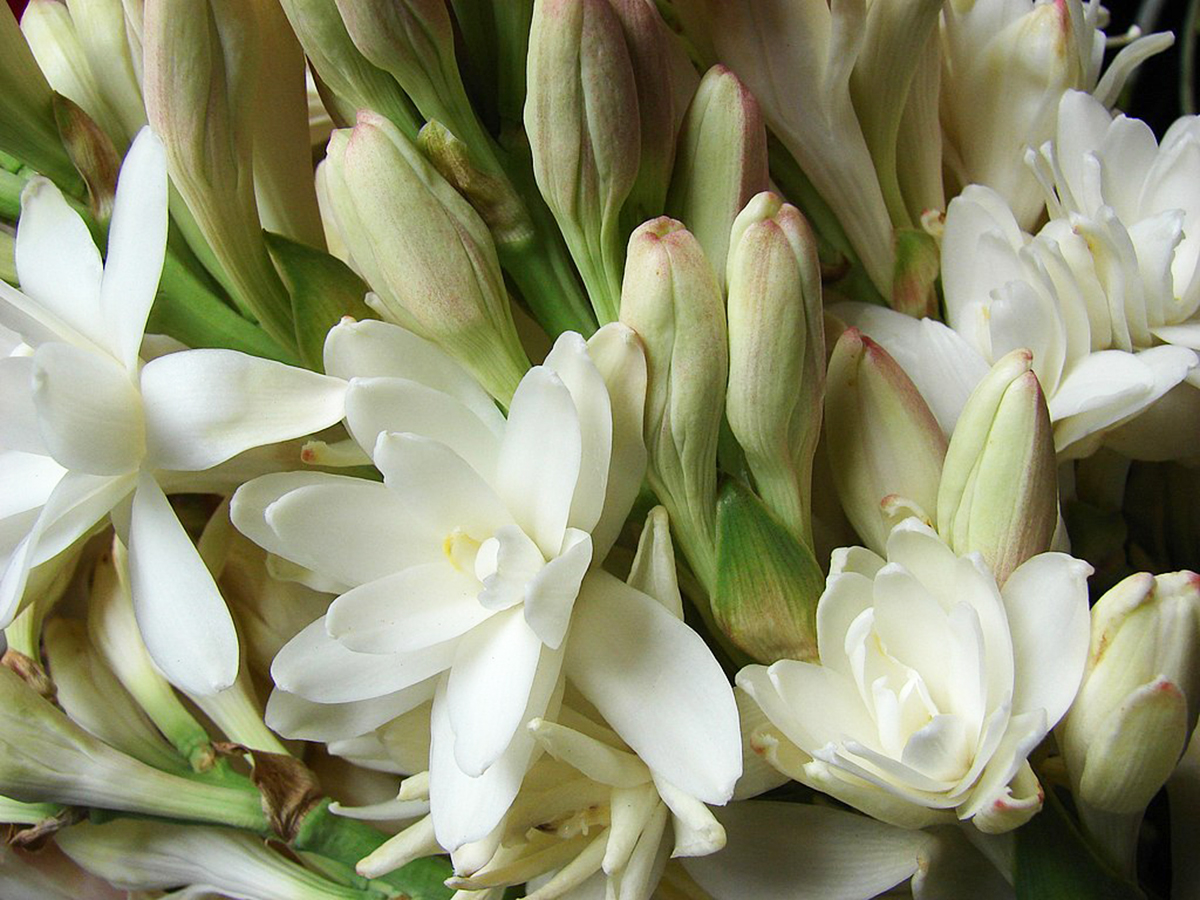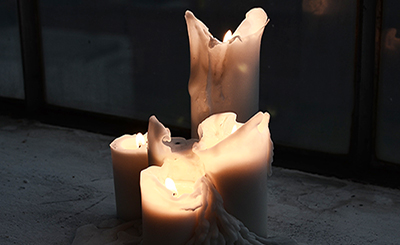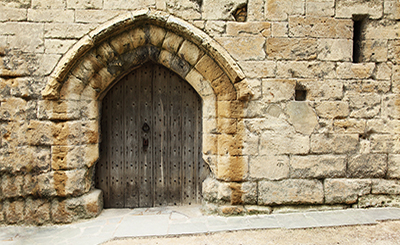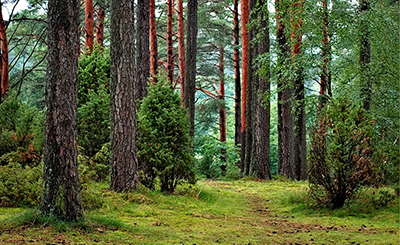
‘I am trying to turn the art of survival into the art of poetry’
I had an affinity with poetry from childhood but started to write poetry late in life, at the age of 30. My genre of choice is prose poetry, but occasionally I write ghazals as well. There were a few Urdu poets writing prose poetry when I started writing in this genre. The recurring themes in my poems are psychic violence and political oppression. I am a bit of a storyteller. I write about everyday events and persons, fictitious or real. Rather than metaphors and similes, I emphasize surreal imagery. I love writing poetic parables.
Being an immigrant from India (Ghazipur, Uttar Pradesh to be precise, where I was born in 1946), I became an alien in the city where I lived from my infancy to the age of 25. I had just started my practical life working as an entomologist when I had to leave Dhaka after the 1971 War of Independence. I arrived in Karachi, a city which was alien to me, but welcoming. In 1975, I got a scholarship from the American University of Beirut. Fate had another war in store for me to witness.
Incidentally, Karachi, too, has been in civil turmoil since 1985. So, I am a survivor, trying to turn the art of survival into the art of poetry. The titles of my collections: An Arrogated Past, A Death Sentence in Two Languages and Rococo and Other Worlds are fairly evocative of the nature of poetry I write. However, no poet worth his/her salt would be contented without writing some love poetry. I, too, write poems about love, but again some of my love poems involuntarily invoke complex realities that are usually unpalatable.
I am passionate about the works of Urdu and Persian classical poets. After being exposed to modern global poetry, I became captivated by poets like Federico Garcia Lorca, Octavia Paz, Saint John Perse, Nazim Hikmet, Yiannis Ritsos, Odysseas Elytis, Ahmad Shamlou, Yehuda Amichai, Kedar Nath Singh, and Post-War Polish poets: Tadeusz Rosewicz, Zbigniew Herbert, Wislawa Szymborska and Iva Lipska.
Tube Rose
Rather than on an arch dedicated to some god, it stood on the bough. Beside the
gateway, with its intangible perfume, to bid welcome and adieu. Holding the
promise of solace with its irresoluble white hue, in a hospital built after the heirs’
claim on the money donated for the purpose by the philanthropist was
overthrown, it had to contend with tincture, ethanol, and formalin which ravage
hearts with their perfume. Beholding it was to have affirmation of one’s
innocence against the suit of existence. It justifiably had the right to be perennial.
gateway, with its intangible perfume, to bid welcome and adieu. Holding the
promise of solace with its irresoluble white hue, in a hospital built after the heirs’
claim on the money donated for the purpose by the philanthropist was
overthrown, it had to contend with tincture, ethanol, and formalin which ravage
hearts with their perfume. Beholding it was to have affirmation of one’s
innocence against the suit of existence. It justifiably had the right to be perennial.
Red Morning Glory
Even the marble headstones were carried away by the looters during the civil war.
The church had already been stripped bare. After the previous century’s war of
independence, the Armenian merchants had moved to the capital of the victors,
and only the church standing there in ardor of God with its bricks and grave
stones was left in their commemoration. The red morning glory covering
the church walls was perhaps introduced in the city along with their God by the
Armenian missioninaries. When a young poet saw them in all their resplendence
The church had already been stripped bare. After the previous century’s war of
independence, the Armenian merchants had moved to the capital of the victors,
and only the church standing there in ardor of God with its bricks and grave
stones was left in their commemoration. The red morning glory covering
the church walls was perhaps introduced in the city along with their God by the
Armenian missioninaries. When a young poet saw them in all their resplendence
he had memorised the sight for the day when his art’s visage covering the church’s
could pay it a tribute commensurate with the beauty of its red flowers and green foliage.
But this vine keeps creeping over the hearts of the poet and his beloved
who does not know it by any name.
But this vine keeps creeping over the hearts of the poet and his beloved
who does not know it by any name.
Water Hyacinth
In a far away, strange land, she who considered her beautiful presence
inadequate, brought along a captivating water flower with her. This aquatic
masterpiece of Nature spread faster than the reign of her compatriots, and
shared their propensity for causing destruction and ruin. She died of malaria and
was saved the suffering and embarrassment of knowing that she was responsible
for the spread of a hostile species. Even when her compatriots' flag no longer flies
on the land, the water hyacinth continues to proliferate.
inadequate, brought along a captivating water flower with her. This aquatic
masterpiece of Nature spread faster than the reign of her compatriots, and
shared their propensity for causing destruction and ruin. She died of malaria and
was saved the suffering and embarrassment of knowing that she was responsible
for the spread of a hostile species. Even when her compatriots' flag no longer flies
on the land, the water hyacinth continues to proliferate.
Yellow Bell Vines
Its vine was stuck to the red walls of the middle school with disquiet. It was with
an evanescent dream that I was connected to these delicate bells that blossom
without any academic exercise. Perhaps my father, who once studied at this
school, had one day plucked a flower from these ancient vines. Everywhere I hear
lost echoes in the yellow bells. Once I began living in a house whose courtyard
walls were covered with yellow bells. When an obstinate rain destroyed them,
I planted the vines in this poem.
an evanescent dream that I was connected to these delicate bells that blossom
without any academic exercise. Perhaps my father, who once studied at this
school, had one day plucked a flower from these ancient vines. Everywhere I hear
lost echoes in the yellow bells. Once I began living in a house whose courtyard
walls were covered with yellow bells. When an obstinate rain destroyed them,
I planted the vines in this poem.
Argemone Mexicana
An anxious student had stood inordinately long before specimen number 8. He
was unable to recall the holy name of a yellow flower. Were it possible, he could
have summoned Linnaeus’s1 soul and told him it that both Voltaire and Goethe
considered him a poet more than a naturalist, and in their names, he should help
activate a humble poet’s memory. He again looked closely at the flower and felt
that the yellow flower wished to introduce itself to him. At that moment it
occurred to him that in the morning he had left his home in the refugee
settlement without eating anything and for the rest of the day his pocket would
be empty. His mind was occupied with the flower's botanical name and the issue
of lunch. “Argemone mexicana!” someone whispered behind him. It was the
instructor who had humiliated him on Wednesday before the whole class for no
fault. The student now recalled the name of the poisonous flower; it was the
same he had been told. In his answer sheet he wrote the name of a completely
non-existent flower: Desderillaelnaenus. The surprised instructor asked him: What
is this you have written? “I do not wish to be beholden to you,” the student replied,
with as much rancour as could be summoned by a starving person.
was unable to recall the holy name of a yellow flower. Were it possible, he could
have summoned Linnaeus’s1 soul and told him it that both Voltaire and Goethe
considered him a poet more than a naturalist, and in their names, he should help
activate a humble poet’s memory. He again looked closely at the flower and felt
that the yellow flower wished to introduce itself to him. At that moment it
occurred to him that in the morning he had left his home in the refugee
settlement without eating anything and for the rest of the day his pocket would
be empty. His mind was occupied with the flower's botanical name and the issue
of lunch. “Argemone mexicana!” someone whispered behind him. It was the
instructor who had humiliated him on Wednesday before the whole class for no
fault. The student now recalled the name of the poisonous flower; it was the
same he had been told. In his answer sheet he wrote the name of a completely
non-existent flower: Desderillaelnaenus. The surprised instructor asked him: What
is this you have written? “I do not wish to be beholden to you,” the student replied,
with as much rancour as could be summoned by a starving person.
1. Carolus Linnaeus: (1707-1778) Swedish naturalist.
Your Henna Shone Brighter in the Clay
Was it Lawsoniainermis1
or its chemical equivalent
with which the world’s best beautifier
mother
made the Maruthani or Arabian or perhaps some alien pattern
on her hands and feet
without allowing it
to be daubed by a single tear from her drying eyes.
The pattern will never be ruined.
To save it from being spoiled,
she has made her beautiful hands and feet
still.
1. Lawsoniainermis is the botanical name of Henna
The poem is a tribute to Qandeel Baloch (1990-2016), a showbiz celebrity who was strangulated to death by her brother for bringing disrepute to the family’s honour.
The essay and the poems are part of our Poetry Special Issue (January 2022), curated by Shireen Quadri. © The Punch Magazine. No part of this essay or the poems exclusively featured here should be reproduced anywhere without the prior permission of The Punch Magazine.
More from The Byword
Comments
*Comments will be moderated












